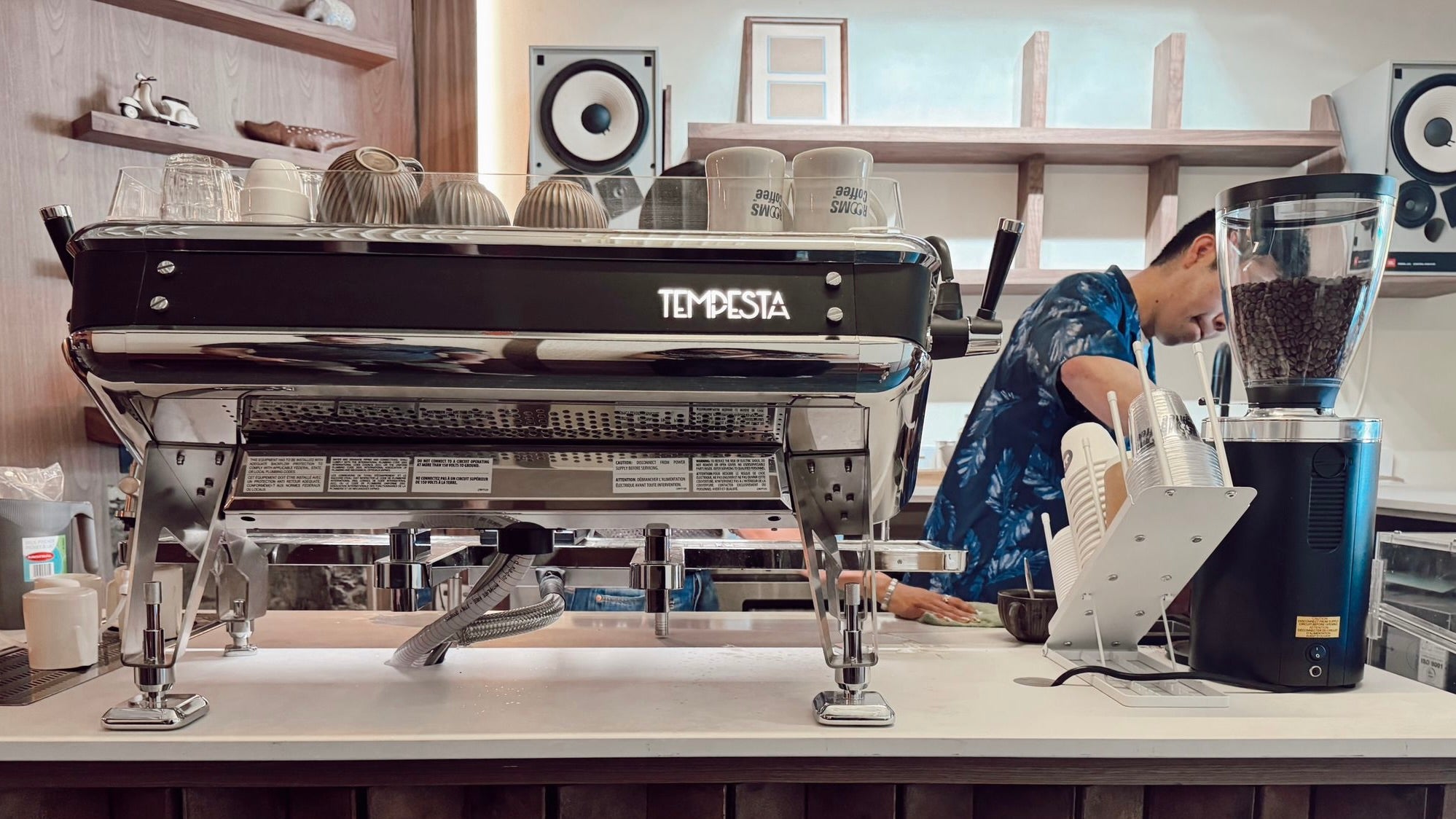
Unlock Your Cafe Dreams: 8 Reasons Why Rent-Try-Buy Makes Financing Easy For Opening a Coffee Shop In Vancouver and Toronto
Open Your Dream Café: Why Starting a Coffee Shop Is More Affordable Than You Think!
So, you're thinking about starting your café? Whether you're an aspiring entrepreneur, an experienced restaurant owner expanding your brand, or a creative millennial looking to make waves in the coffee scene, this could be the perfect time to make it happen. The good news? Launching a coffee shop is not only exciting, but it's also more affordable than you might expect.
Why a Café is the Perfect Business
Coffee shops, with their manageable setup and approachable nature, are more feasible for aspiring entrepreneurs and small business owners than the complex operations of a full-service restaurant. With fewer upfront costs, lower staffing needs, and a straightforward setup, a café offers a smooth entry into the food and beverage industry. Plus, the thriving coffee culture in places like Vancouver and Toronto presents a ready market for you to tap into.
A Lower-Cost Path to Success with High ReturnsWhat makes a café more affordable than other businesses? Here's the breakdown:
- Smaller Staff: There is no need for a full kitchen crew. You can start small and scale up as needed.
- Lower Equipment Costs: Espresso machines and grinders are significantly less expensive than restaurant-grade kitchen equipment.
- Compact Space: You don't need a massive location—just enough space for your customers to sit and enjoy that perfect brew.
Financing Made Simple: Enter Silver Chef
Financing your dream café is easier than ever, thanks to Silver Chef. Whether you're an experienced hospitality manager or a new immigrant with business experience, Silver Chef offers Rent-Try-Buy. This affordable solution allows you to rent your equipment with the option to buy later. Here's how it works:
- Unrivalled Flexibility: Rent for as long as you need, with the option to buy anytime.
- Buy Out Anytime: Fall in love with your equipment? Buy it when you're ready.
- Upgrade Anytime: Your café outgrows your setup? Easily upgrade your machines.
- Off-Balance Sheet: Keep your financials lean—no large upfront costs.
- Preserve Capital: Free up funds for other areas, like marketing or staff.
- Manage Cashflow: A weekly rent system keeps your cash flow healthy and predictable.
- 100% Tax Deductible: The entire cost of renting your equipment is deductible.
- Quick $50K Approval: Need equipment fast? Get up to $50,000 approved quickly!
The Numbers: How Affordable Is It Really?
Let's crunch some numbers. Say you want to buy a high-quality espresso machine priced at $10,000. Instead of paying upfront, you could rent it for about $127 weekly. To cover that cost, you'd need to sell only 9 cups of coffee daily at a $2 profit per cup. Everything beyond that goes straight to your bottom line!
Here's the formula:
- Weekly Rent: Equipment cost × 0.012692 = Weekly Rent
- (For example, $10,000 × 0.012692 = $126.92 per week)
- Cups Needed to Cover Rent: Weekly rent ÷ profit per cup ÷ days open (7) = cups per day
- (For $10,000 equipment: $126.92 ÷ $2 ÷ 7 = 9 cups per day)
Equipment Cost Breakdown
|

Who's Ready to Take the Plunge?
This financing model is perfect for a variety of potential café owners:
- Aspiring Entrepreneurs: If you want to pivot from retail or corporate life, opening a café is a creative, customer-focused way to get started.
- Existing Restaurant or Café Owners: If you already own a bakery or restaurant, adding a coffee shop is a great way to diversify your brand and expand your revenue.
- Franchise Seekers: Would you prefer the structure of a proven model? Franchising a well-known coffee brand provides a lower-risk opportunity to join the coffee world.
- Creative Millennials or Gen Z Entrepreneurs: Want to create a one-of-a-kind, Instagram-friendly café? Equipment rental frees up capital so you can focus on aesthetics and sustainability.
- Experienced Hospitality Managers: If you've managed a café or restaurant before, starting your own coffee shop lets you leverage your experience with fewer operational complexities.
- New Immigrants with Business Experience: Coffee shops offer a relatively low barrier to entry, allowing you to blend your cultural experience with Canadian coffee culture.
- Investors Seeking Passive Income: Looking for a business opportunity in high-demand markets like downtown Vancouver or Toronto? A well-placed coffee shop could be your next passive income source.
Why Vancouver and Toronto?
Both Vancouver and Toronto have thriving coffee cultures and growing populations, making them ideal locations for coffee shop startups. Each city attracts aspiring coffee entrepreneurs with different motivations:
- Vancouver: Known for its eco-conscious, health-oriented, and high-quality coffee culture. Many coffee shop owners in Vancouver aim to tap into the "green" and artisanal market.
- Toronto: As Canada’s largest city with a highly diverse population, Toronto’s coffee market is broad, ranging from high-end specialty cafés to neighborhood spots. Toronto also boasts a strong entrepreneurial community, offering excellent support for startups.
Genius Coffee N'Espresso Equipment has offices in both Vancouver and Toronto, allowing us to provide fast, reliable service to coffee shop owners in both cities. Whether you need help selecting the right espresso machine or require quick service and maintenance, we're here to support you at every stage of your business journey.
No matter the city, common motivators for opening coffee shops include:
- Passion for coffee and hospitality.
- Urban growth, leading to more foot traffic and demand for food and beverage spots.
- The desire to create unique experiences and community hubs.
- Opportunities for relatively low-cost entry compared to other types of food businesses.

- Choosing a selection results in a full page refresh.
!
